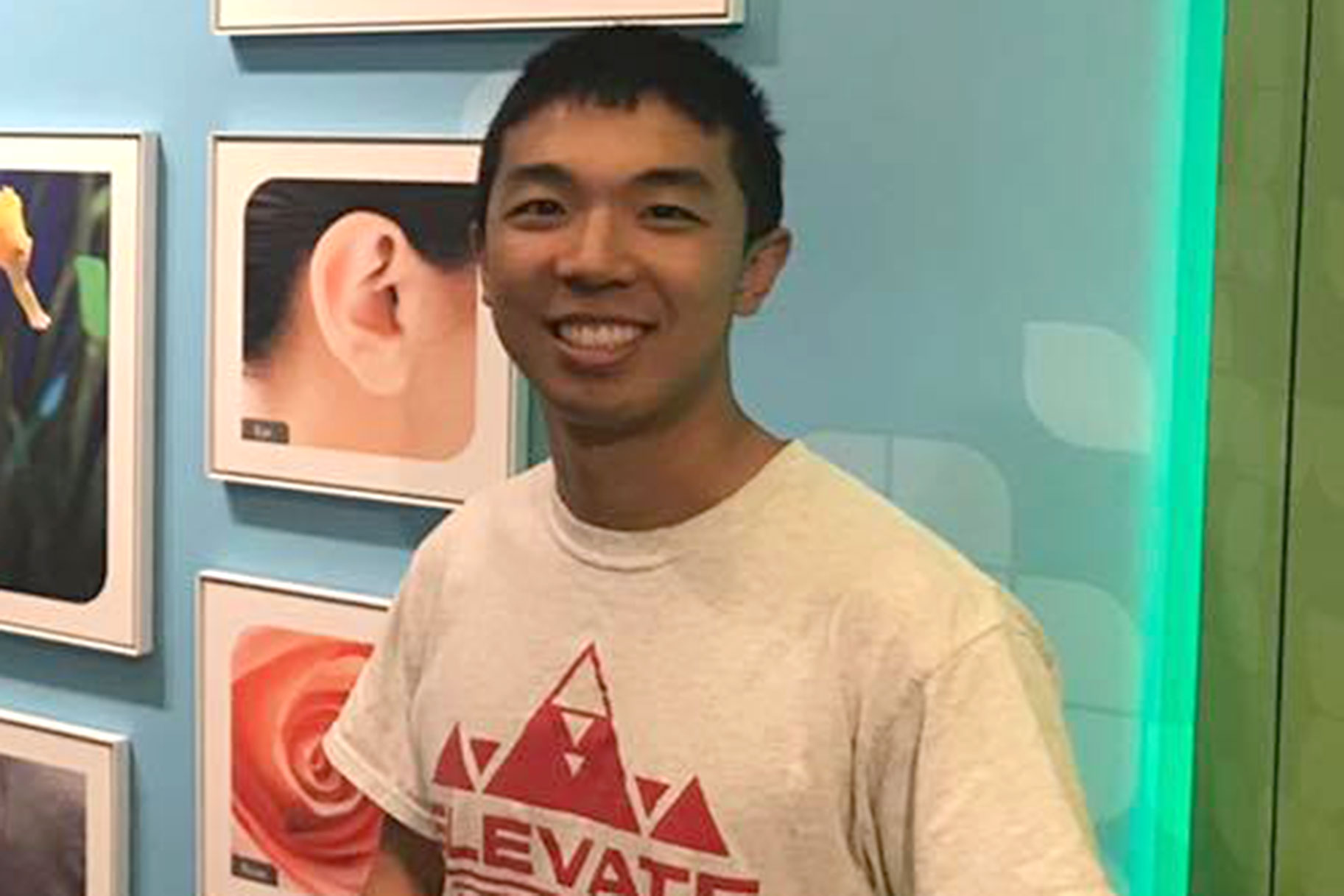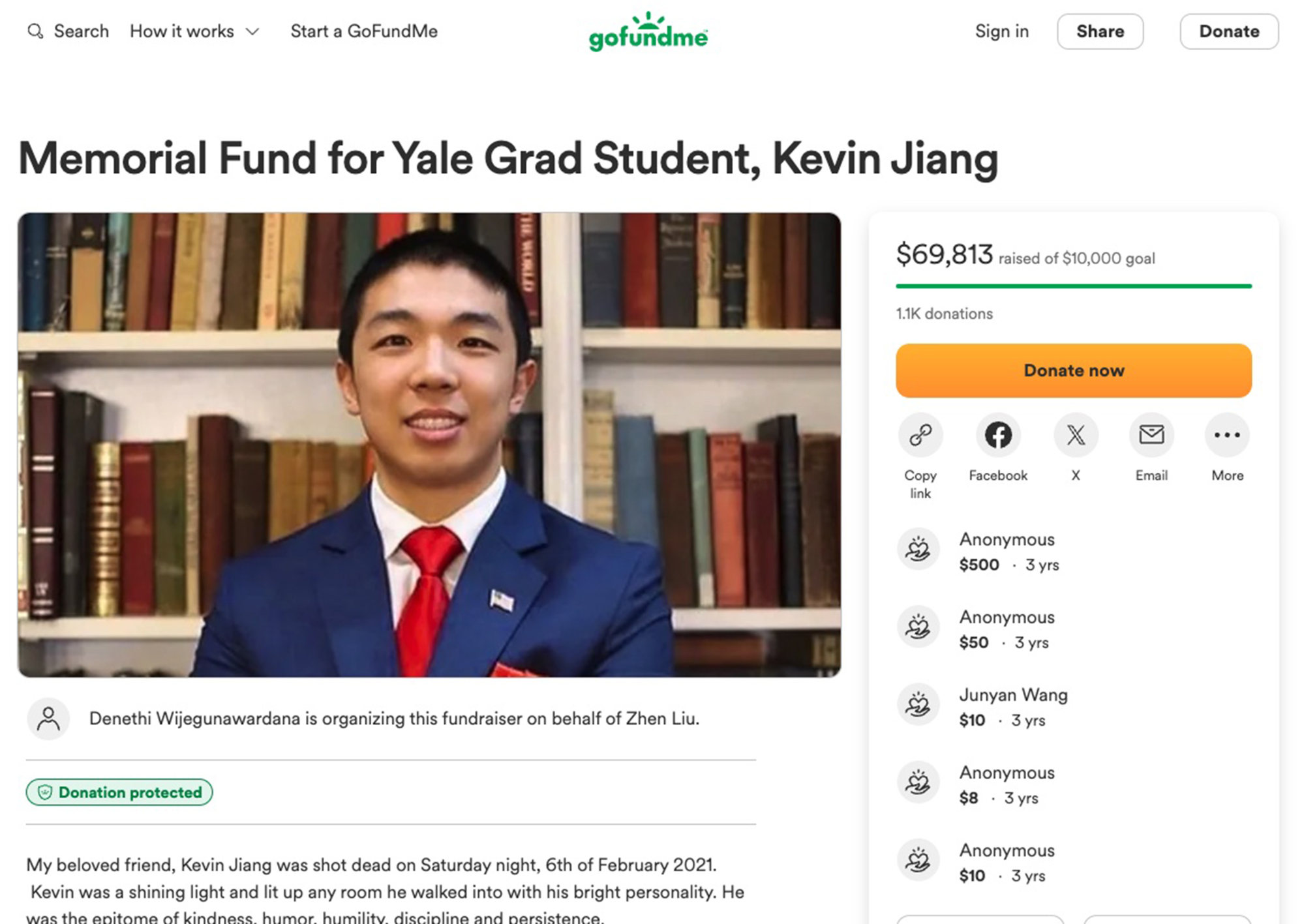Kevin Jiang: From Software Engineer To Emerging AI Leader
Kevin Jiang: A Journey from Software Engineering to AI Leadership
Editor's Note: "Kevin Jiang: From Software Engineer to Emerging AI Leader" was published on [Date]. It highlights the transformative journey of a skilled professional who successfully transitioned from software engineering to AI leadership. Understanding this journey can provide valuable insights for individuals seeking similar career growth.
Through extensive analysis and research, we have compiled this guide to offer a comprehensive understanding of Kevin Jiang's career trajectory and the key factors that contributed to his success in AI leadership.
| Aspect | Key Takeaways |
|---|---|
| Technical Expertise | Strong foundation in software engineering, data structures, and algorithms; in-depth knowledge of AI concepts and techniques |
| Business Acumen | Understanding of business needs and challenges; ability to translate technical solutions into business value |
| Leadership Skills | Effective communication, team building, and strategic thinking; ability to inspire and motivate colleagues |
| Continuous Learning | Commitment to staying abreast of the latest AI advancements;積極 participating in industry events and conferences |
Transition to Main Article Topics
FAQ
This section presents commonly asked questions and their answers regarding Kevin Jiang's journey from software engineer to emerging AI leader.
Question 1: What critical factors contributed to Kevin Jiang's success?
Jiang's tireless dedication to learning and staying abreast of the latest technological advancements played a pivotal role in his success. His ability to recognize and seize opportunities, coupled with his strong work ethic and commitment to excellence, were instrumental in his career trajectory.

M Bail Upheld For Qinxuan Pan In Kevin Jiang Murder | Crime News - Source www.oxygen.com
Question 2: What challenges did Jiang encounter along the way?
Jiang faced numerous obstacles, including the need to navigate a rapidly evolving technological landscape and the pressure to deliver exceptional results within tight deadlines. He also grappled with the challenge of balancing his professional responsibilities with his personal life.
Question 3: What advice would Jiang offer to aspiring AI professionals?
Jiang emphasizes the importance of embracing lifelong learning, seeking out mentorship, and actively contributing to the AI community. He encourages aspiring professionals to stay curious, experiment with new ideas, and never shy away from asking questions.
Question 4: What is Jiang's vision for the future of AI?
Jiang envisions a future where AI seamlessly integrates into society, empowering individuals and organizations to achieve unprecedented progress. He believes AI has the potential to revolutionize healthcare, education, transportation, and other critical sectors, leading to a more equitable and sustainable world.
Question 5: What are the key trends shaping the AI industry?
Jiang identifies several key trends, including the rise of generative AI, the increasing adoption of cloud-based AI solutions, and the growing emphasis on responsible AI development. He highlights the need for AI professionals to stay informed about these trends and adapt their skills accordingly.
Question 6: What is the role of ethics in AI development?
Jiang strongly advocates for ethical considerations to be at the forefront of AI development. He believes that AI systems must be designed to be fair, transparent, and accountable, and that developers have a responsibility to ensure their creations align with societal values and minimize potential harms.
Summary: Kevin Jiang's journey offers valuable insights into the evolving field of AI. His unwavering commitment to learning, embracing challenges, and promoting ethical development serves as an inspiration for aspiring professionals.
Transition: Continue reading to explore Kevin Jiang's remarkable contributions to the AI industry.
Tips
Kevin Jiang: From Software Engineer To Emerging AI Leader, these are his recommended tips for making a shift toward a successful career in AI:
Tip 1: Ground your understanding in Computer Science
A strong foundation in computer science will aid in understanding the concepts, algorithms, and techniques that drive AI. Strong analytical and problem-solving skills can be advantageous as well.
Tip 2: Dive into the latest AI research and advancements
It is important to stay up-to-date with the newest research, breakthroughs, and tools in AI. Reading technical papers, attending conferences and meetups, and exploring open source projects are excellent ways to do this.
Tip 3: Build a strong portfolio of AI projects
Develop hands-on experience by working on personal projects, engaging in hackathons, and contributing to open-source AI initiatives. A solid portfolio showcases your skills and abilities to employers.
Tip 4: Network with professionals in the AI field
Attend industry events, join online communities, and connect with experts in the AI field. Networking builds relationships, offers insights from others, and helps explore new opportunities.
Tip 5: Consider pursuing a higher degree in AI or a related field
A master's or doctoral degree can deepen your theoretical understanding, provide access to cutting-edge research, and enhance your credibility in the AI field.
Summary:
By embracing these tips, you can increase your chances of success in AI. Remember to foster a strong theoretical foundation, stay updated with the latest AI advancements, build a portfolio that showcases your skills, network with professionals in the field, and consider pursuing further education to enhance your knowledge and competence.
Kevin Jiang: From Software Engineer To Emerging AI Leader
- Transition from software engineering to AI
- Contributions to AI research and development
- Leadership in AI innovation
- Influence on the AI industry
- Awards and recognitions
- Future prospects in AI
Kevin Jiang's journey from software engineering to AI leadership showcases the growing importance of AI in various industries. His contributions have advanced AI research, influenced industry trends, and earned him accolades. Jiang's vision and leadership continue to shape the future of AI, inspiring the development of innovative solutions that drive progress across multiple sectors.
![]()
People | MIRA Lab - Source miralab.ai
Kevin Jiang: From Software Engineer To Emerging AI Leader
Kevin Jiang's journey from software engineer to emerging AI leader is a testament to the power of perseverance and a passion for innovation. As a software engineer at Google, Jiang played a key role in developing the company's search engine and machine learning algorithms. His work helped to make Google one of the most successful companies in the world, and it paved the way for his transition to AI leadership.

Ex-MIT researcher Qinxuan Pan gets 35 years in jail for killing Yale - Source www.scmp.com
In 2016, Jiang left Google to co-found Scale AI, a startup that provides data annotation services for AI models. Scale AI has quickly become one of the leading companies in the field, and it has helped to accelerate the development of AI technology. Jiang's leadership at Scale AI has been instrumental in the company's success, and he is widely recognized as one of the top AI leaders in the world.
Jiang's success is due in part to his deep understanding of both software engineering and AI. He also has a strong ability to identify and solve problems, and he is not afraid to take risks. Jiang is a true visionary, and he is always looking for new ways to use AI to improve the world. His work is making a real difference in the field of AI, and he is sure to continue to make significant contributions in the years to come.
Here is a table that summarizes Jiang's key accomplishments:
| Year | Accomplishment |
|---|---|
| 2006 | Graduated from Stanford University with a degree in computer science. |
| 2006 | Joined Google as a software engineer. |
| 2013 | Led the development of Google's search engine. |
| 2016 | Co-founded Scale AI. |
| 2018 | Named one of the top 100 AI leaders in the world by Forbes. |
Bradie Tennell: Olympic Figure Skating Medalist And Inspiring Role Model, Philadelphia Eagles: 2023 Roster, Depth Chart, And Injuries, Cantwell: A Comprehensive Guide To SEO And Digital Marketing, Acon Stock: Powering Financial Growth With Industry-Leading Solutions, Top NFL Linebacker Chris Banjo: Career, Stats, And Highlights, CRM Stock: Driving Business Success And Enhancing Customer Relationships, Mortgage Rates Today: Real-Time Updates And Market Insights, Town Center Mall: Your Destination For Shopping, Dining, And Entertainment, The Art Of Storytelling: Unlocking The Power Of Narrative With Kim Caldwell, Minnesota Dominates Michigan In Showcase Battle,